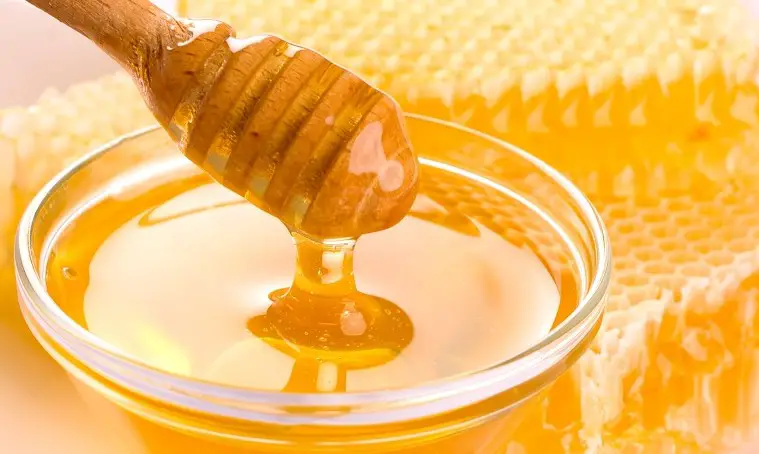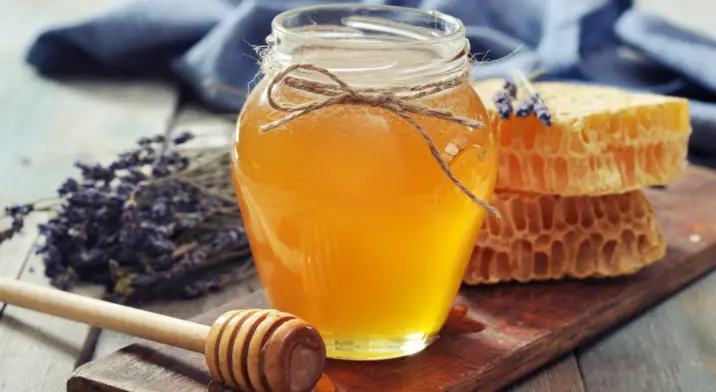Can horses eat honey? Yes, horses can eat honey. Like humans, horses love honey, but it should be given to them in controlled quantities to avoid the effects of inappropriate consumption. The importance of honey cannot be overemphasized in the dietary and extra-dietary requirements for horses. However, Its significance is not and should never be seen as an approval of the abuse.
Amazing facts about honey

- Do you know that to make a pound of honey, the honey bees in a colony may have to visit at least 2 million flowers and travel over 50,000 miles? Consequently, a single bee may have to visit 70 to 100 flowers on a single trip. This gives a glimpse of what effort is required to make the magic that honey is, among other patiently programmed chemical processes.
- 1 tablespoonful of honey contains about 18 grams of simple sugar.
- It is one of the few consumable compounds with no expiry date, which adds to its economic value as a dietary supplement for horses.
- Honey is 20% water and 80% solid in content. It is a supersaturated solution containing water, sugars such as fructose and glucose, minerals such as calcium, proteins, vitamins A and B, and enzymes. Each of its components plays a vital role that contributes to its overall usefulness either as a dietary supplement or used for other purposes harnessing its therapeutic efficacy.
Health benefits of Honey to Horses
Honey is generally known as a sweetener and is not famous for its significance in the therapeutic vocabulary for animals, especially horses. The components of the honey offer invaluable benefits to the horses when honey is administered in appropriate doses. There is no known official dosage of honey that should be given to the horses. However, caution should be exercised in caring for the horses because of their high sugar content.

The health benefits of honey to horses are as follows ;
Anti-Inflammatory
Like humans, horses have constant processes in their bodies that are markers of aging. With increasing age, inflammatory processes occur in different parts of the horse’s body, which can manifest as arthritis and pain at the joints, reduced tolerance for strenuous work, and generally mitigated fervor for activities.
Honey prevents inflammation by inhibiting the effects of chemical substances responsible for carrying out the debilitating effects of inflammation.
There are other diseases caused by inflammation in horses. An example is inflammatory airway disease which manifests as cough, poor performance, and excess mucus. Honey reduces the morbidity associated with this disease by coating the airway and preventing the excessive production of mucus that is responsible for the cough.
Vitamin Rich
Honey is a tincture of numerous vitamins and minerals of high therapeutic benefit to horses. Honey is one of the few natural substances that offer the amalgam of vitamin A and B in the diet for horses.
Vitamin A and B are required for their effect on horses’ metabolic processes (i.e., processes involved in bodybuilding ). If your horse(s) feed mainly on roughages, Vitamin A is the content of honey that is urgently needed.
Diseases such as diabetes, cancer, and hypertension, are dependent on oxidant activities in the horse’s body. Vitamin A and B have antioxidant effects that clear accumulated oxidants out of the body.
It is common knowledge that proteins are a necessary class of food required for bodybuilding, maintenance, and tissue repair. The protein content of honey contributes to the dietary requirement of your horses.
The mineral content of honey is predominantly calcium. Calcium helps build healthy bones and teeth, and it plays a major role in activating enzymes and blood clotting in horses.
The Copper, Zinc, and Iron content in honey help in bone development and the building of connective tissues such as the bones and muscles. Iron is also required to form red blood cells for carrying oxygen to the horse’s tissues in the blood.
Antibacterial effect
The relatively acidic nature of honey offers an unfavorable environmental condition to bacterial cells at the site of wounds. The topical application of honey on wound surfaces aids in quicker healing and prevention of the formation of pus.
Boosting of performance
Honey contains a high quantity of simple sugars such as fructose and glucose. It is very easy for the horse’s digestive system to break down these forms of sugar and convert them to energy. Therefore, the administration of honey to horses boosts the horse’s performance astronomically because it serves as a quick supplement for energy.
Honey should be given once a week or whenever required, such as in treating coughs in horses. It should not be given in uncontrolled amounts to avoid the risk of obesity associated with excessive sugar consumption.
In conclusion
Honey is of inestimable value to the health and wellbeing of a horse because of its dietary and therapeutic values. So it should be given to the horses but in moderate proportion.
